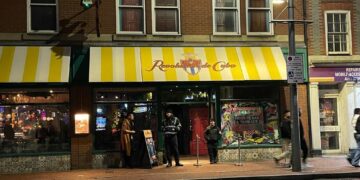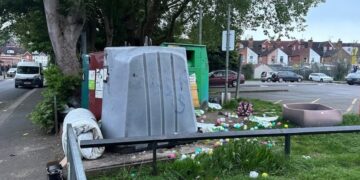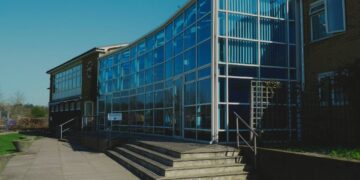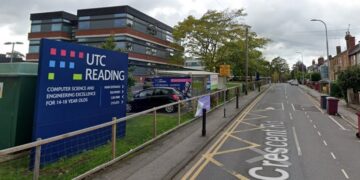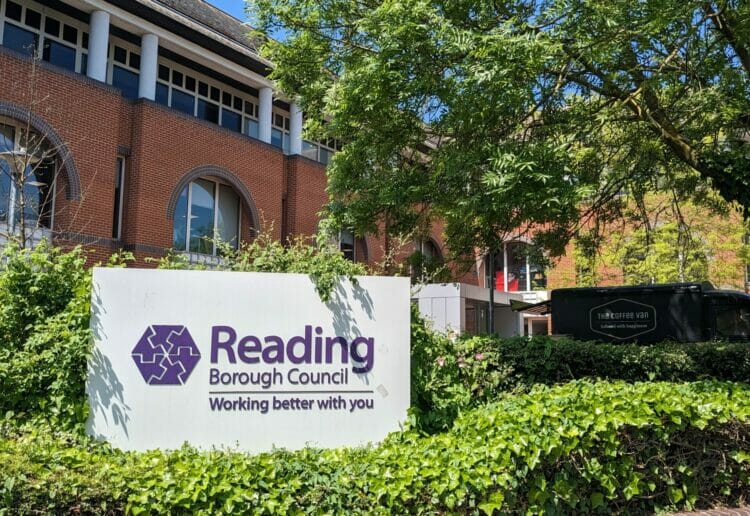READING Borough Council has begun consulting on a new policy regulating the grant of alcohol licenses as part of a regular review.
The Licensing Act 2003 requires council licensing authorities to publish a Cumulative Impact Assessment if it is believed that granting further licenses could add to crime in a given area.
The council has cited data provided by Thames Valley Police, which it says shows “a significant issue with consistent levels of crime throughout the day, every day of the week.”
The data is part of a Cumulative Impact Assessment, a tool for authorities to identify areas where a concentration of venues is causing intractable harm to licensing objectives.
Thames Valley Police figures detail that the Abbey/Battle area is where the most crime overall is reported, representing 33% of the total in 2021, rising to 37% in 2022.
They also showed that Saturdays and Sundays saw a combined share of 36% of crimes recorded compared to other days.
This was cited as evidence that the night-time economy was adding to crime levels.
It also explained that Fridays saw an increase in crime, accounting for 14% of the weekly total.
This would be equivalent to average if split across 7 days, but due to the higher levels of crime during Saturday and Sunday, represents an increase of around 1.5% over the remaining weekdays.
A Reading Borough Council representative said: “The council has always worked with Thames Valley Police on public safety issues.
“Whist the Council will consider guidance and have due regard when making any decision, ultimately it is for the Council to make the decision whether to implement a Cumulative Impact Area”
They explained that the figures it cites, provided by Thames Valley Police, constituted “good quality evidence” in support of a consultation for a CIA.
“Residents and businesses are being given the opportunity to comment on the proposal and their experiences in respect of the impact of licensed premises in the designated area.”
As for concerns about promoting more business in the town centre, the council said that it “does not consider [that] this conflicts with encouraging the Central Reading economy.
“Conversely, meeting the licencing objectives through the proposed policy this could help attract more diverse and varied businesses, improve the local environment and benefit the local community.
“Ensuring quality for all residents that meet our minimum standards of safety for the public should not be considered a issue for businesses.
“Ensuring good quality commercial businesses is the surest way to achieve a more positive economy for the local community.”
While the council says that it has “no reason” to expect increased numbers of hearings for its licensing committee, it also says that applications will still be considered on a case-by-case basis.
Bill Donne of Silver Fox Licensing Consultants said some of the data from the cumulative impact assessment “was selected from the whole of the Battle ward, which is a large area, and not representative of the town centre where the policy is likely to come into effect.
“The statistics require further interrogation and consideration, and there’s insufficient information to make an informed decision because they’re overall figures.”
While the figures cite that the weekend sees a disproportionately high level of crime across the week, Mr Donne said: “What they have failed to do is link the statistics of the number of crimes to the licensed premises.
“Now if a new venue applies for a license, or an existing venue seeks to change its license, the policy means a presumption of rebuttal.”
This means that a venue expects to have its application rejected, unless it applies to have the decision examined, which results in a hearing at the council.
“This is going to significantly affect existing venues, who will at very least have to go to the committee to update licensing, who are expected to reject as a result of the cumulative impact policy.
“At the moment, police can already make a representation against a new venue or license change, so all the CIP is doing practically is discouraging new venues from coming in.
“I accept the aspiration to have a more diverse offering in the town centre, but they seem to have ignored a number of factors, and the statistics in the assessment just aren’t very representative of the town centre.
“We don’t need the CIP to force a hearing if the council is looking for venues to demonstrate that they won’t add to problems in the town.”
Reading Borough Council has laid out the details of the consultation online via: reading.gov.uk/business/licences/alcohol-and-entertainment-licences/
You can also find the details of the evidence presented via: reading.gov.uk by searching for “Cumulative Impact Assesment.”
The consultation closes on Tuesday, September 12.




